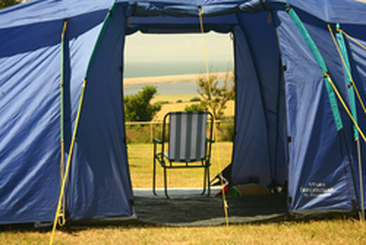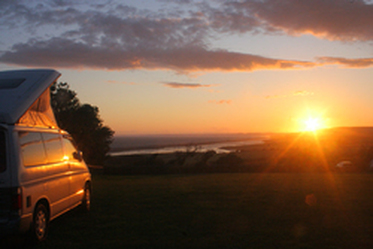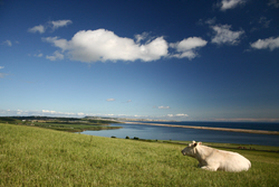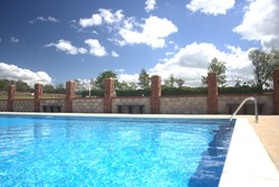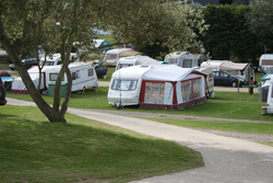Where to Camp in Dorset...
|
If you’re looking for a great place to camp or caravan, Dorset could be for you. There’s plenty to see and do and a wide range of fabulous places to pitch or unhitch.
Exactly what your options are when it comes to campsites in Dorset will depend on the time of year you choose to visit. Peak-season, when demand for pitches is at its height, capacity in the area is boosted by temporary campsites in farmers’ fields. These tend to offer few and basic facilities as they are limited to 28 days of use each year. If you’re after more than a tap and a “Port-a-loo” (or worse the dreaded long-drops or thunder boxes), make sure you choose a licensed camping park. These specialised campsites are inspected annually, licensed by the local authority and often graded under schemes run by organisations like Visit Britain and the AA. Facilities on licensed parks are generally of a much higher standard as most are permanent fixtures. Licensed sites are required to have proper sanitary and washing facilities, as well as proper rubbish disposal. They also have to comply with special regulations for camping parks, covering everything from fire safety (including grass length) to freedom from faeces from grazing livestock - something that’s not always easy to achieve in fields used for farming as well as camping. As every boy scout and girl guide knows, good hygiene when camping is essential, especially for children. (Animal poo, kids and alfresco eating are never a good combination without excellent hand washing!) Because licensed camping parks are also subject to the full rigour of the planning system they are usually open for most, if not all, of the year, and have limits on the numbers of tents or caravans they can accept. In the summer peak, you might be lucky enough to find space on a licensed park without a booking, but if you want to make sure you don’t end up on a 28-day-overspill site, it's worth making inquiries before you set-off or, ideally, booking well in advance. Licensed parks are professionally run and usually have proper booking systems to secure your pitch. Other benefits of licensed camping parks and campsites include that they tend to have more roads and hard-surfaces, which can be a real boon for car drivers and camper vans in the low season or wet weather. In addition to proper shower, toilet and sometimes bathroom facilities, licensed parks also provide sinks for washing up. Beyond these basic necessities, the range of facilities offered will be dependent on individual parks, but would often include Electric Hook-up (EHU) pitches, laundry facilities, swimming pools, bars and restaurants. Day-to-day practicalities like laundry may be the last thing on your mind when you’re picking out a place to stay, but if you have kids, or you’re into outdoor pursuits of any kind, you’ll be amazed at the difference it makes to your camping experience to have somewhere to wash and dry clothes. Getting back to nature is one thing, but beating dirty, wet clothes against a stone is a step too far! If nothing else, sand in your smalls really chafes! But don’t think that a licensed park means you won’t get a sense of being in the great outdoors. Whilst there are licensed parks on the urban fringe with large amusement complexes (often run by large corporate businesses), there are also parks in truly spectacular rural locations with stunning views of the sea. During the summer peak these particularly scenic campsites are likely to be popular and well-subscribed, even so, they offer an excellent opportunity to enjoy the open air and great scenery without regressing to the dark ages or long-drop bogs! They also offer one of the best-value ways of getting out and about in some of Britain’s best and most beautiful countryside! One more thing to bear in mind. If you’re thinking of wild camping or freedom camping in Dorset, don’t forget it’s illegal without the permission of the person who owns the land… |
If you're after more than a tap and a "Port-a-loo"...make sure you choose a licensed camping park " |
